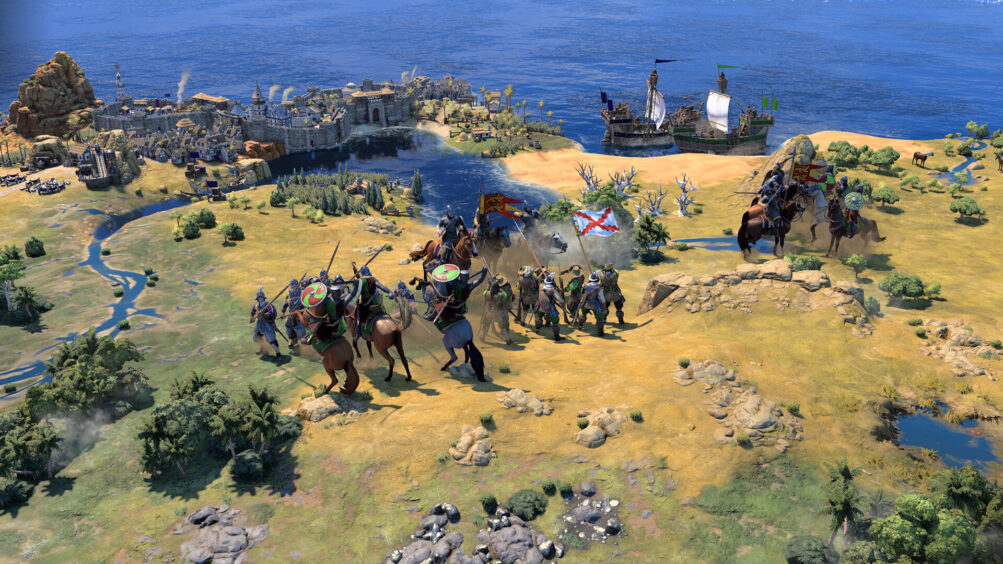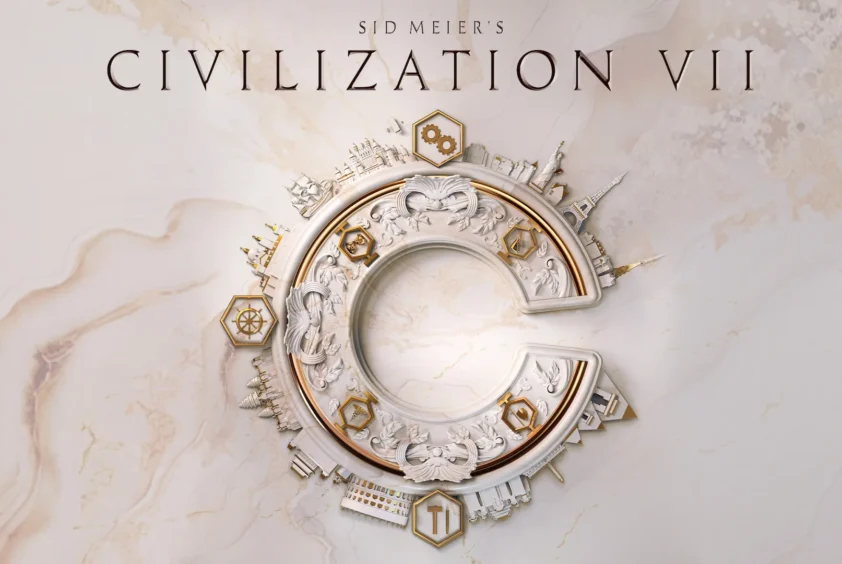With the release of Civilization 7, a franchise that has been a core part of my gaming life for some time now—a game that is currently pulling me away from Path of Exile 2 and my Witch. From countless sleepless nights trying to squeeze out just one more turn in Civilization 3 to navigating the shift to hexagonal tiles in Civilization 5, to wrestling with Civilization 6’s district system, each entry has brought something new to the table.
Now, with Civilization 7, the big question is: Does it push the series forward in meaningful ways, or is it simply a refinement of what came before? I’m eager to see how it tackles long-standing issues, like AI diplomacy and late-game pacing, while also introducing fresh mechanics that could redefine strategy gameplay.
Will it finally balance wide vs. tall empires? Will the district system evolve or be reworked entirely? And most importantly, will it still have that just one more turn of magic that has kept me hooked for decades?

First Impressions – A Blend of Old and New
From the moment I launched Civilization 7, it was clear that Firaxis Games aimed to strike a balance between evolution and familiarity. The UI has been refined yet again, offering a more modern aesthetic while maintaining the accessibility that made Civilization 6 such a joy to navigate.
Graphically, Civilization 7 doesn’t reinvent the wheel, but it does offer sharper visuals, better lighting, and more realistic terrain textures. Units and cities feel more alive, thanks to improved animations and more distinct cultural flourishes. That said, the real meat of any Civilization game lies beneath the surface—in its systems, AI, and the stories that emerge through gameplay. And that’s where Civilization 7 both shines and stumbles.
New Mechanics – More Than Just a Facelift?
City Development & Urban Sprawl

One of the biggest shifts in Civilization 6 was the introduction of districts, forcing players to plan cities with much more precision. Civilization 7 takes this a step further by introducing a dynamic urban growth system. Now, cities expand naturally over time based on resources, trade, and population, making urban planning feel more organic rather than strictly dictated by the player’s choices.
This means that cities develop in ways that feel more like historical metropolises rather than carefully placed district layouts. The downside? Some players (myself included) might feel a loss of control over perfect city planning, a hallmark of previous Civilization games. While I appreciate the realism, I found myself missing the ability to completely dictate the flow of my empire’s expansion.
Diplomacy & AI – Smarter, but Not Perfect
One of Civilization 6’s biggest weaknesses was its AI. Leaders were notoriously inconsistent—one minute, they were your best friend, and the next, they were declaring war for no logical reason. Civilization 7 brings some welcome improvements, with AI that better accounts for long-term relationships, trade benefits, and military strength. I particularly enjoyed the new Civics Trust system, which lets players earn favour with AI leaders through ideological alignment rather than just brute-force diplomacy.
In my play through, I had a surprisingly stable alliance with Cleopatra, built on mutual economic benefits and similar government choices. That said, there were still occasional head-scratching moments, like Teddy Roosevelt randomly nuking me despite our 300-year-old alliance.

Military & Combat – Finally, Some Real Strategy
Civilization 5 famously ditched the stack-of-doom for one-unit-per-tile (1UPT), and Civilization 6 built upon this with corps and armies. Civilization 7 refines it further by introducing a Strategic Command System, allowing certain units to be grouped together for combined arms tactics.
This makes combat feel more tactical without bringing back the overwhelming stacks from earlier games. Naval combat, however, is still a weak point. Ships feel more like glorified land units that happen to float rather than vital military assets. This is something Civilization 3 and Civilization 4 actually did better, as naval control in those games truly mattered.
Comparing Civilization 7 to Previous Games
Vs. Civilization 6 – A Smarter Evolution
Civilization 7 builds upon Civilization 6’s strengths while correcting many of its flaws. AI is smarter, city planning feels more natural, and combat is more engaging. However, it lacks the same revolutionary feel that Civilization 6 had when it first launched. It’s more refinement than reinvention.

Vs. Civilization 5 – Is the Golden Age Over?
Civilization 5 remains a high point in the franchise, and Civilization 7 borrows a lot from it, particularly in government mechanics. However, one thing Civilization 5 still does better is pace. The balance of expansion, economy, and warfare in Civilization 5 felt nearly perfect, while Civilization 7 sometimes struggles with game pacing, especially in the mid-game.
Vs. Civilization 4: The Legend Still Holds Up
Many diehard fans still swear by Civilization 4, and honestly, I get it. With the depth of its AI and the simplicity of its mechanics, combined with deep strategic layers, it’s still hard to beat. Civilization 7 brings some of that back, but it still doesn’t quite have the same level of fine-tuned polish.
Performance, Soundtrack,& Quality of Life Improvements
Technically, Civilization 7 runs well, with much better turn times compared to Civilization 6 at launch. AI turn times, which have been a historical pain point for the series, are significantly faster, reducing late-game waiting. The soundtrack remains phenomenal, with dynamically evolving civilization themes that shift as the ages progress. I found myself humming certain tracks long after I finished playing—a testament to Civilization’s consistently excellent musical direction.

Quality-of-life improvements are also noticeable. The UI is more intuitive, tooltips are more informative, and city management is less cumbersome. That said, the new urban sprawl mechanic means city planning veterans will need to adjust their approach, which may be a turnoff for those who enjoyed Civilization 6’s precise district system.
Final Verdict – A Worthy Successor, but Not a Revolution
For me, Civilization 7 is a fantastic Civilization game—it refines, polishes, and improves upon many of the series’ previous ideas. But does it truly innovate? Not quite. It feels like a step forward but not a leap.
If you love Civilization, you’ll enjoy Civilization 7, but if you were hoping for a bold new vision, you might be left wanting. At the end of the day, I’m still saying ‘one more turn.’ But am I saying it with the same excitement as I did back in the Civilization 5 days? I’m not so sure.
Civilization 7 Trailer
Read more awesome reviews >>here<<.
The code was provided by the distributor.
I reviewed it, and then it was edited by my partner.








You must be logged in to post a comment.